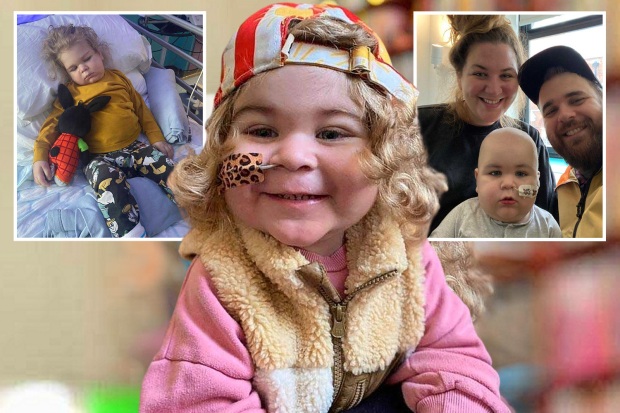Over the years, parents have been routinely warned about common illnesses that can affect their children, such as colds, flu, measles, and chickenpox. But one potentially deadly illness that often gets overlooked is herpes, particularly herpes simplex virus (HSV). In this blog post, we aim to shed light on the tragic story of a three-year-old boy who tragically lost his life after contracting herpes, to raise awareness and issue a desperate warning to parents everywhere.
HSV is a common virus affecting millions worldwide, typically presenting as cold sores (HSV-1) or genital herpes (HSV-2). Although it is often considered harmless in adults, it can have severe consequences in young children, particularly those who are immunocompromised.
Our story revolves around a loving mother and her three-year-old boy, whose life was abruptly taken away by HSV. She wants other parents to understand the gravity of the situation – that herpes in children, especially the very young, can be fatal. She hopes to use her painful experience to raise awareness about the disease, urging parents to take preventive measures and recognize early symptoms, thus potentially saving lives.
The herpes simplex virus in children is most commonly transmitted from an infected caregiver or family member, often unknowingly. While adults may experience mild symptoms, children, especially infants and those with weak immune systems, can face severe manifestations.
Neonatal herpes, contracted from the mother during childbirth, can lead to skin, eye, mouth infections, or even disseminated disease affecting the brain and other organs. In young children, like our three-year-old, it can similarly have severe complications if not identified and treated promptly. Symptoms may include fever, fatigue, skin rash, or blisters, which can often be mistaken for other common pediatric conditions.
Prevention is paramount when it comes to protecting children from HSV. Some strategies include good hand hygiene, avoiding sharing of utensils and personal items, not kissing the child when a cold sore is present, and practicing safe childbirth in mothers with known genital herpes.
Early recognition is equally crucial. If your child develops unexplained fevers, rashes, blisters, or seems unusually lethargic, seek medical advice immediately. Early treatment with antiviral medications can significantly reduce the severity of the disease and prevent fatal complications.
In the tragic case of our three-year-old, the mother wants her story to be a wake-up call for parents. It is essential to be aware of the risks, preventive measures, and early symptoms of herpes in children. In the face of her immense grief, she issues a desperate plea to all parents – do not underestimate the dangers of herpes in young children.












